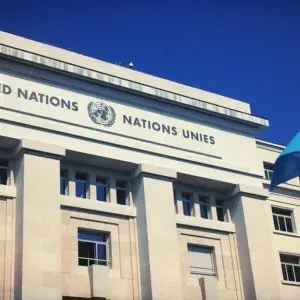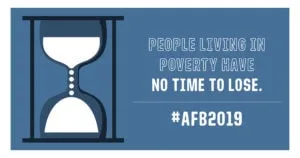Last week, two big documents came out and our roundup blog looks at the implications for economic and social policy and people living in poverty.
The first is the Government of Canada’s response to the Universal Periodic Review (UPR), an examination of Canada’s entire human rights record that which took place at the United Nations in Geneva earlier this year.

Canada Without Poverty (CWP) was at the UPR in May, representing a coalition of twenty-three grassroots organizations based in communities across the country. The coalition’s submission to the review called on the government to take serious and immediate steps to address the disproportionate rate of poverty for a country with Canada’s wealth and provide effective remedies for people experiencing violations of their economic and social rights, like the right to housing.
Member States of the UN Human Rights Council gave strong recommendations to Canada during the review, including calls for the federal government to recognize the interdependence and indivisibility of all human rights (Uruguay) and ensure the justiciability – meaning the ability for these rights to be matters decided in court – of economic, social and cultural rights (South Africa).
Unfortunately, in its response, Canada once again reiterated its lack of commitment to economic and social rights, by saying it is “not in a position to make commitments regarding the legislation as it has not yet been introduced” on the right to housing, and suggesting that sufficient avenues for recourse for economic and social rights already exist.
In a country with nearly five million people living in poverty (when utilizing the LIM-AT measure), three million households precariously housed, and four million people experiencing food insecurity, it is clear that the rights to housing, food, and an adequate standard of living are not accessible and there are no clear methods of recourse for violations of these rights.
Canada signed onto the International Covenant on Economic, Social and Cultural Rights in 1976 – yet over forty years later, governments in Canada are still prevaricating on whether these rights are real, while people in one of the wealthiest countries continue to struggle to meet their basic needs.
Last week also saw the release of the new version of the Alternative Federal Budget (AFB), the progressive civil society report led by the Canadian Centre for Policy Alternatives.
 Each year, CWP participates in the creation of the AFB as we work to develop strong federal policy recommendations on poverty, housing, senior income security, and more. This year, the AFB’s recommendations build off of the release of the National Housing Strategy and the Canadian Poverty Reduction Strategy – Canada’s first federal policies on housing and poverty.
Each year, CWP participates in the creation of the AFB as we work to develop strong federal policy recommendations on poverty, housing, senior income security, and more. This year, the AFB’s recommendations build off of the release of the National Housing Strategy and the Canadian Poverty Reduction Strategy – Canada’s first federal policies on housing and poverty.
While these historic strategies are significant steps in the right direction, more direct and immediate action is necessary to address the high rates of poverty and housing insecurity in Canada, including legislating minimum national standards for income assistance to ensure welfare is accessible and adequate in every province and territory; increasing the guaranteed income supplement (GIS) top-up for low-income seniors; and allocating $1.5 billion immediately to the Canada Housing Benefit, launching it a year earlier than its intended start date of 2020.
Big calls from the AFB this year include recommendations for universal pharmacare and childcare programmes. Canada remains the only industrialized country with a universal healthcare programme, but no corresponding pharmacare framework. According to the AFB, implementing a national, universal single-payer pharmacare plan with a comprehensive drug formulary could lead to annual savings of $11.5 billion across the entire economy.
The same is the case for childcare; most comparable countries spend at least 1% of GDP on child care, but Canada only spends an estimated 0.5% annually. With a national framework, Canada could work towards reaching the international benchmark of government spending on early learning and child care, while creating opportunities for people to enter or re-enter the workforce through the elimination of significant barriers like prohibitive child care costs.
The AFB provides a fully-costed framework for a more caring and equitable society with decent work, universal access to health, and fair taxation. As the consultations for Budget 2019 continue, we hope the federal government will listen to civil society’s recommendations to build an inclusive economy.

